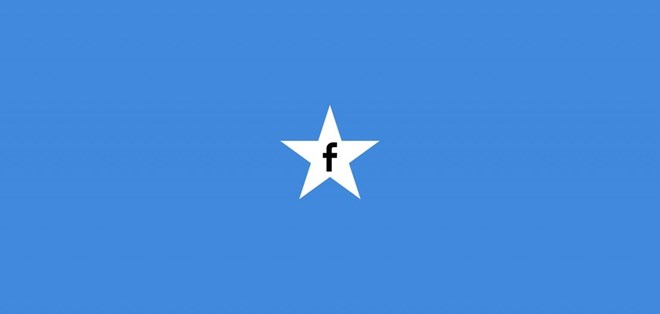
Tuesday May 5, 2020

Facebook CEO Mark Zuckerberg likes to sing the praises of his platform as a champion for freedom of expression, but this rings hollow for many journalists in Somalia.
Somali journalists already have one of the toughest jobs in the world. They often risk their lives to cover the country’s conflict, where government forces are pitted against the armed group Al-Shabaab. To make matters worse they often face reprisals from either side. Journalists reporting critically on the government risk government blacklisting, harassment and censorship; but they also face death at the hands of Al Shabaab should they report negatively on the armed group’s activities.
It is against this context social media platforms such as Facebook offer a lifeline for communities to receive independent news directly from Somali journalists. Yet for many leading Somali journalists, their job became even more difficult when Facebook suddenly silenced them.
Ali Adan Mumin, an independent journalist, woke up to an email from Facebook on 16 June 2019, informing him that he had suddenly become ineligible to use the platform and that the decision was final. After pressing Facebook for an explanation, he was told his account had been shut down due to purported violations of Facebook’s Community Standards.Astonishingly, nine other leading Somali journalists received the exact same message from Facebook that day: the tech giant had decided to shut out these journalists from public debate in Somalia. That was it. No further rationale was given, and no avenue of appeal was available.
“I had around 60,000 followers and I lost my account just like that. I think someone from the government reported me to Facebook. I no longer have access to my account, I have to start it from scratch, it is not fair,” Ali Mumin says.
Amnesty International’s report, “We Live In Perpetual Fear: Violations and Abuses of Freedom of Expression in Somalia” released in February 2020, illustrates that Somali journalists face threats from both Al-Shabaab and the government, and often risk their lives in the pursuit of journalism.
In 2019, for the fifth year running, Somalia topped the Committee to Protect Journalists’ (CPJ) Global Impunity Index of countries where those who kill journalists are not prosecuted – making it among the world’s most dangerous places to be a journalist.
Al-Shabaab has claimed responsibility for most murders of journalists in the country. Public relations campaigns run by Al-Shabaab use traditional and social media to communicate what they consider to be military successes and depict their opponents in a negative light. Journalists working in areas with a significant Al-Shabaab presence risk their lives when they report on sensitive issues deemed to embarrass or negatively implicate the armed group in any way. But Somalia’s federal government isn’t making it any easier for media workers either when they run similar PR campaigns to show off their might over Al-Shabaab, leaving journalists between a rock and a hard place.
Somalia President Mohamed Abdullahi Mohamed, popularly known as Farmajo, and his administration censor mainstream media and use social media platforms to manage public debates and promote government policies.
A significant number of Somalis in and outside of the country use Facebook, Snapchat and Twitter to discuss politics, national issues, religion and identity. Social media has become a political tool in Somalia and, for better or worse, Facebook is how most urban Somalis keep up to date on current affairs.
President Farmajo’s administration has evidently capitalized on this to share positive political messaging with the Somali public in ways that past administrations could only dream of doing.
That’s why it is extremely worrying when journalists like Ali Mumin wake up to find their Facebook accounts shut down with no way to appeal these decisions.
Another independent journalist, Abdirazak Ali Hiiran’s account was disabled on 24 March 2019. He is now in the process of verifying his identity as the actual account owner and can’t help but think the Somali government is behind his woes.
Individuals deserve to know how and why their accounts are flagged for purported violations of Facebook Community Standards and should to be able to engage in a timely and genuine appeal process with Facebook. This is especially crucial for independent journalists, whose main media of communicating to the public are social media platforms like Facebook. This trend is all the more alarming as Somalia prepares for the country’s first ever “one person, one vote” election early in 2021.
Facebook has a role in ensuring people in Somalia can fully exercise their right to information and freedom of expression, including media freedom at all times. Zuckerberg’s freedom of expression aspirations ring hollow as long as Facebook continues to violate people’s own rights to the same freedom of expression.
A simple first step would be to carry out due diligence when accounts are flagged for closure and ensure people’s voices are not silenced because they speak inconvenient truths to power, more so for journalists who play a pivotal role in advancing freedom of expression.
Ordinary Somalis already face vast obstacles to accessing essential information safely or to expressing themselves freely. Facebook must not become yet another obstacle, especially as elections loom large. Too much is at stake.